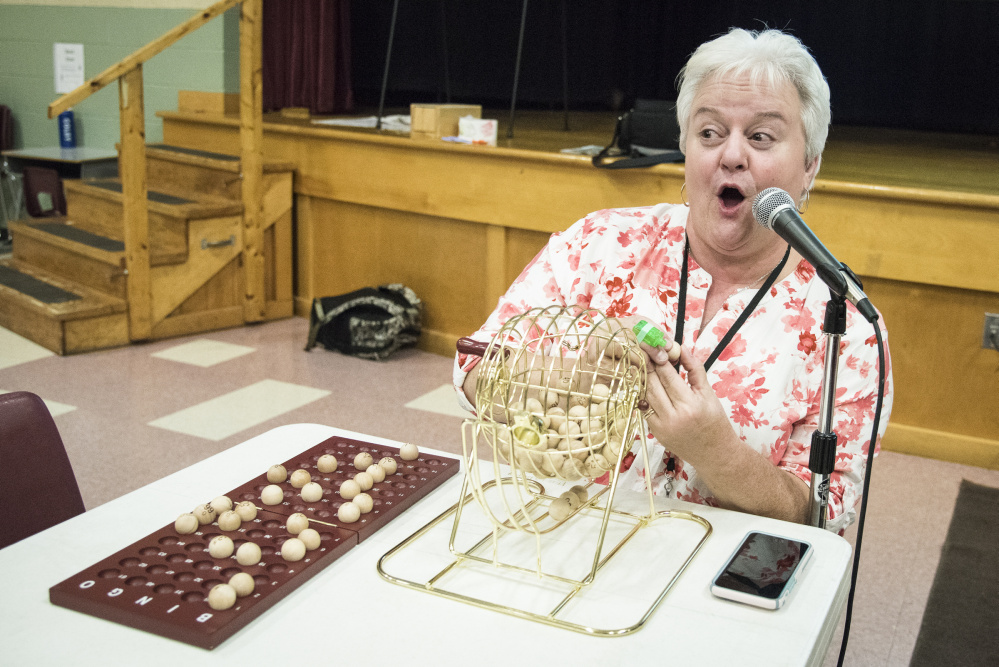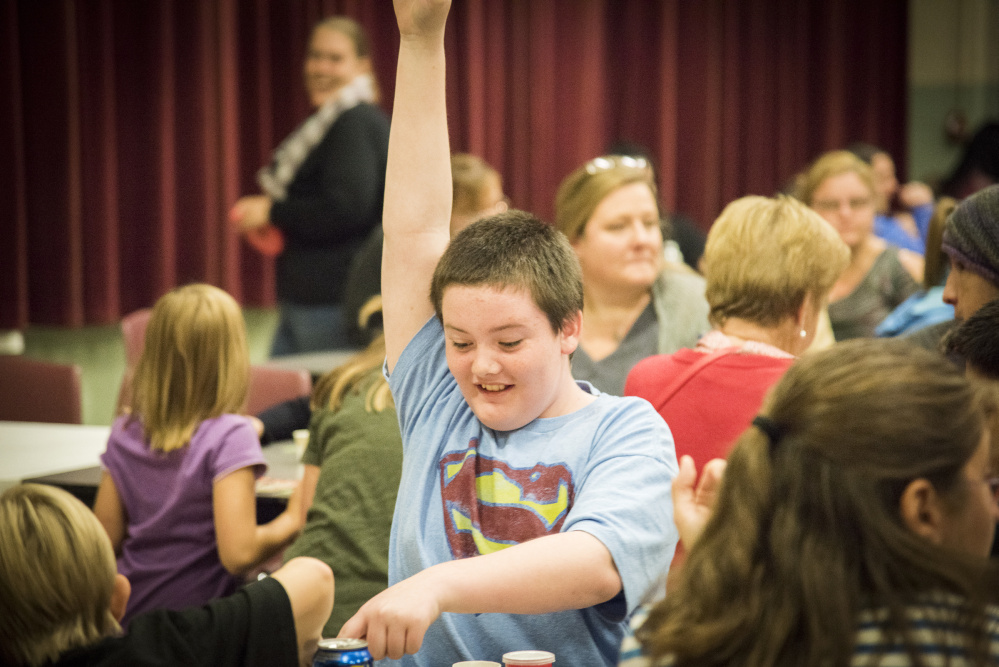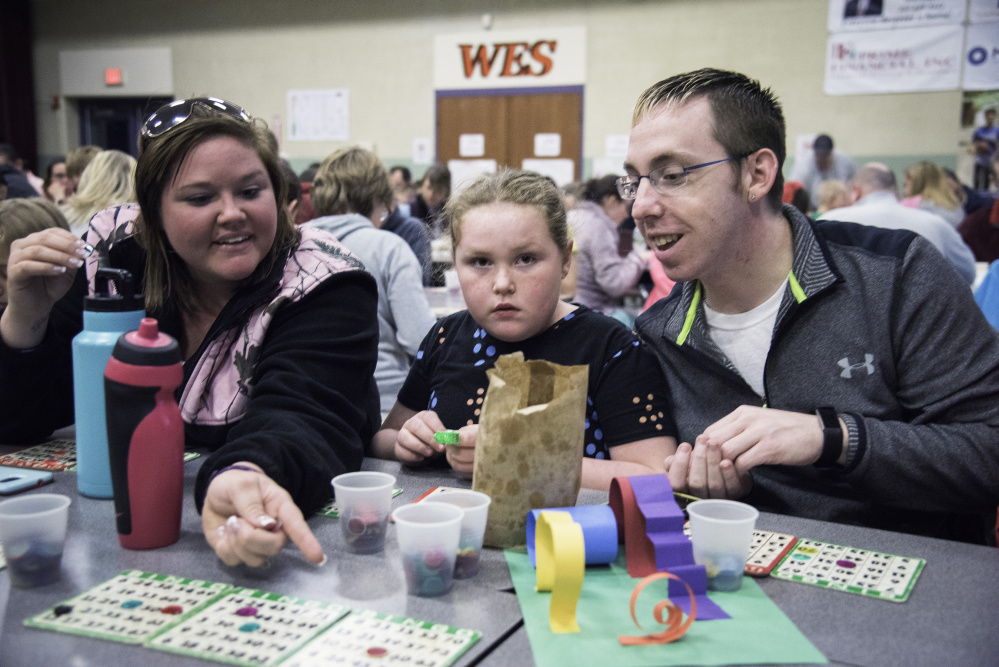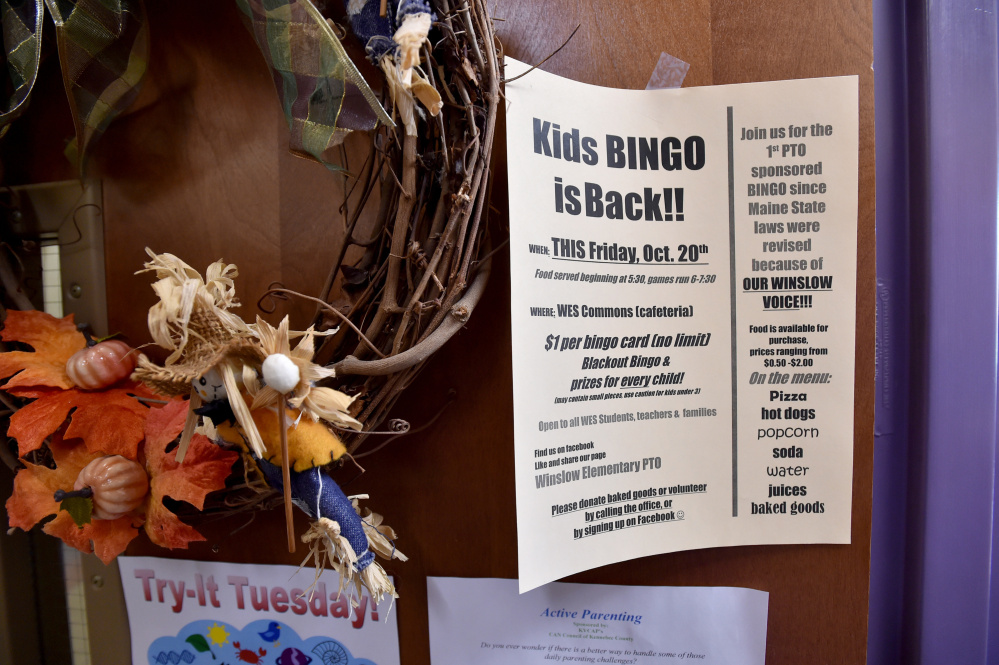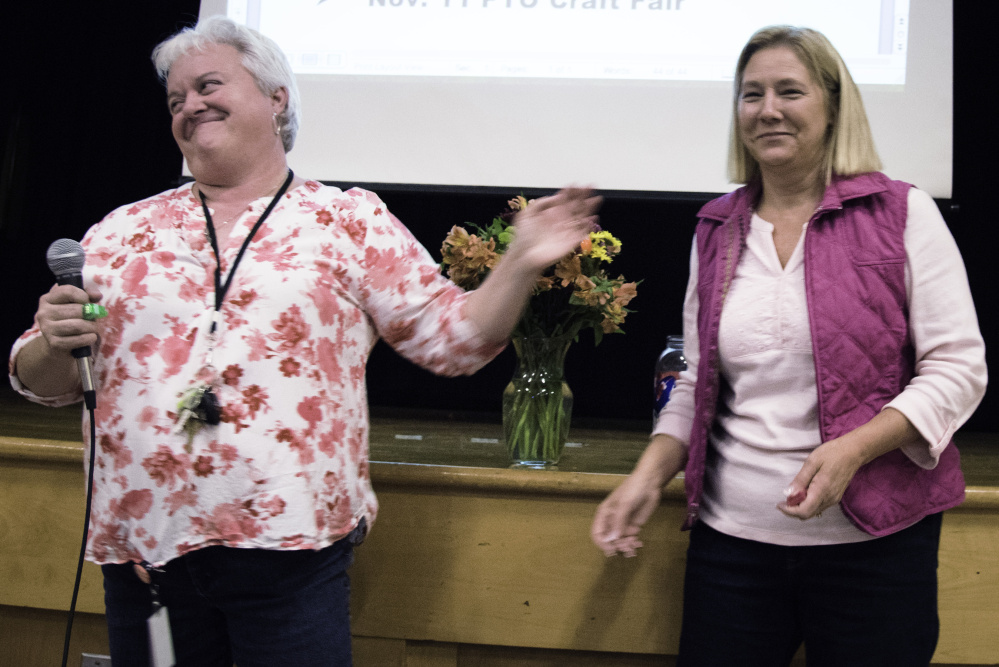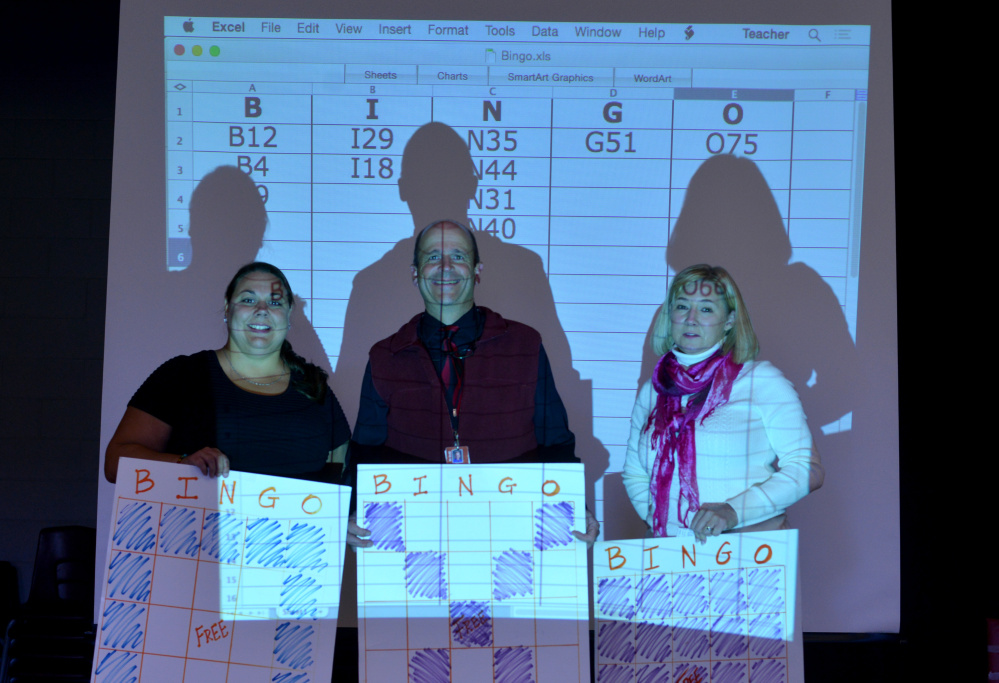WINSLOW — It was a clear and crisp night Friday, Oct. 20 at the Winslow Elementary School cafeteria as teacher Patty Scully called out numbers and letters. Students and their parents studied cards and helpings of hot dogs and pizza were served on paper plates.
Hunter Ward, 11, of Winslow, wearing a “Superman” T-shirt, raised his hand in the air.
“Bingo!”
The bingo night fundraiser on Oct. 20, attracting some 300 people, was the first at the school in nearly two years following a change in state law. When the state shut down a fundraising bingo night at Winslow Elementary School, the Parent-Teacher Organization director refused to stand down.
“My kids are excited, the parents are excited. Everyone’s excited,” said Jenn Tyler, PTO director. “This benefits all the schools in Maine.”
With the help of Rep. Catherine Nadeau, D-Winslow, school staff and PTO members persuaded the Legislature to amend a law that requires organizations running regular bingo nights to get annual licenses.
Paying for a $400 bingo license wasn’t an option for the PTO, as the law had required. The PTO had been using the bingo nights to raise funds for programs that students otherwise wouldn’t get to experience, such as Wildlife Encounters presentations, which cost about $1,400, and a Family Fun Fest that cost about $1,500.
The bingo nights, which have been held two to four times per year since the new elementary school was built in 1993, brought in about a quarter of the nonprofit’s yearly revenue. Families pay $1 per board and can buy food at a concession stand for dinner.
“It was a great family event. From our perspective, we saw it as a great way to bring families together, and there’s both math and language involved in it,” said Kyle Price, the school’s principal.
In December 2015, the PTO was forced to stop its bingo nights when a state inspector found out about the practice and told them it was illegal without a license and sent a copy of the state law to the school.
While bingo is regulated by the state’s gambling commission, Tyler said they don’t play for cash prizes. Children win trinkets like stick-on mustaches or funny glasses, and they keep playing until everyone gets something.
“The families were just so upset because there was so much good learning going on,” said Tyler, a mother of three in the district.
The recent change exempts elementary and middle schools from the license and registration requirement if the proceeds are used to support a PTO or pay for the prizes, if the games are offered just to students, staff and families, and if the prizes don’t exceed $25.
Bingo was originally legalized in Maine in 1943 and the licensing fee was $2, according to records from the Maine State Law and Legislative Reference Library. Throughout the work sessions, legislators mostly debated whether bingo was gambling and whether that should be encouraged in Maine.
At first the bill put forth a minimum annual licensing fee of $500 for most and a minimum fee of $50 for some organizations, like schools. It’s not clear what was behind the amendment that lowered the cost to $2 for all organizations.
In 1998, the law was changed and the annual fee was set at $400. Supporters of the bill argued it was necessary to increase enforcement and prevent “shell nonprofits” and that it would take away only a small percentage of bingo revenue. Opponents, however, said the increase would place an undue burden on nonprofits already facing higher prices for items related to bingo and that the law over-regulated the issue. The bill ultimately passed.
Following the 2015 shut-down notice and with no satisfactory replacement for the bingo nights families loved so much, Winslow school staff and PTO members decided to try to enact change.
“We didn’t want to take a no,” Tyler said.
They enlisted Nadeau’s help to write and sponsor legislation that would change the law.
The amendment was incorporated into the budget during the last contentious legislative session in July after Price, Tyler and Patty Scully, an instructional specialist at the school, testified on the issue.
Nadeau “went in headfirst” on this issue because she remembered how important it was for her kids to have an opportunity to get together as a community after school.
“I feel that it should never have been taken away from them,” she said. “I’m just glad it’s done and that the whole state of Maine will benefit from this.”
Legislators “from both sides of the aisle” supported the change, Nadeau said, and some said this seemed like an unintended consequence of the original law.
Scully, who traveled to Augusta to testify on behalf of the bill, said legislators seemed to realize that the same thing was happening in their communities across the state.
“For an entire year, kids have been approaching us asking why haven’t we had Friday night bingo,” she said. “I feel like the legislature did the right thing.”
The PTO plans to hold another bingo night most likely in early December.
Madeline St. Amour — 861-9239
mstamour@centralmaine.com
Twitter: @madelinestamour
Send questions/comments to the editors.


